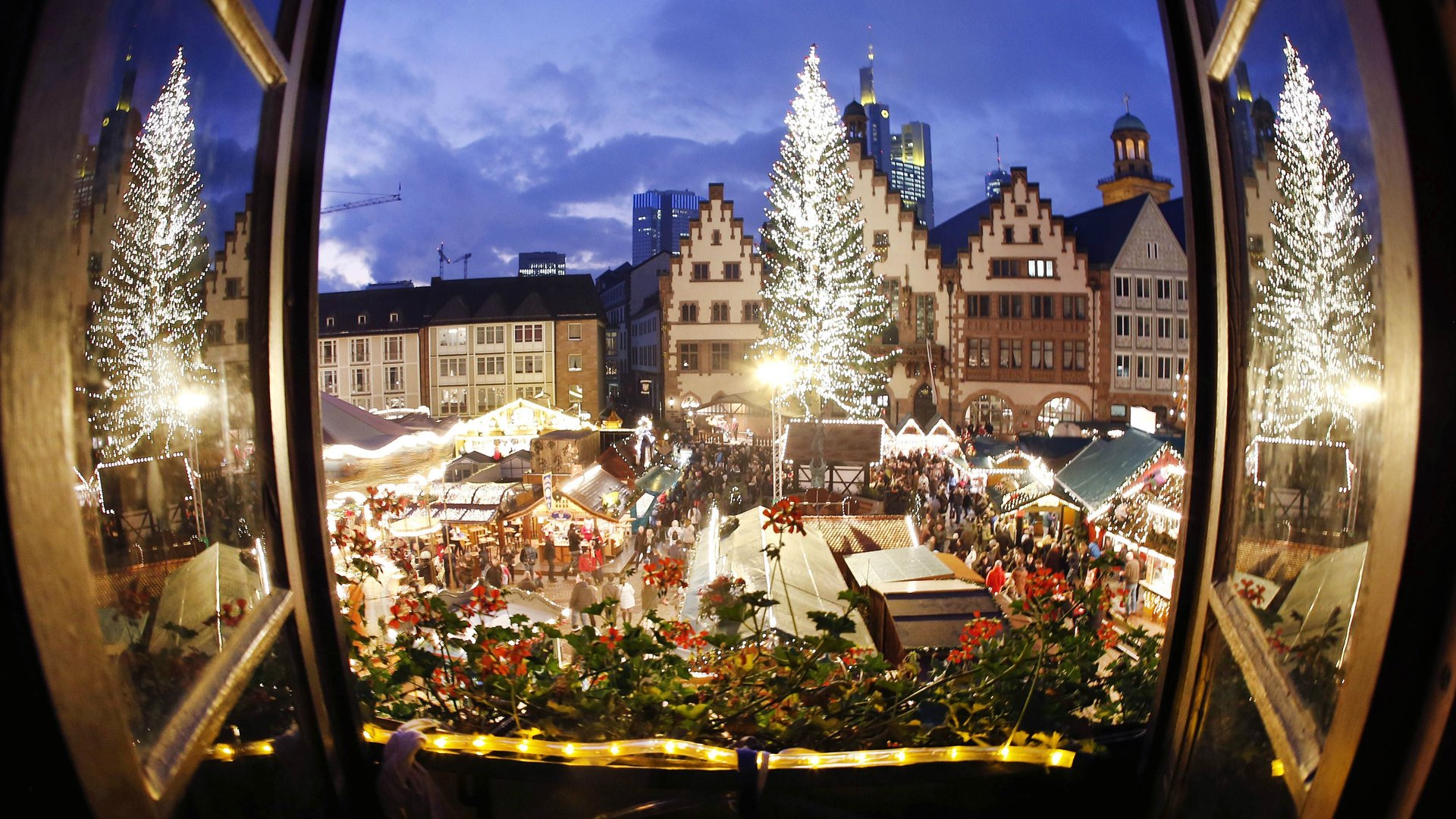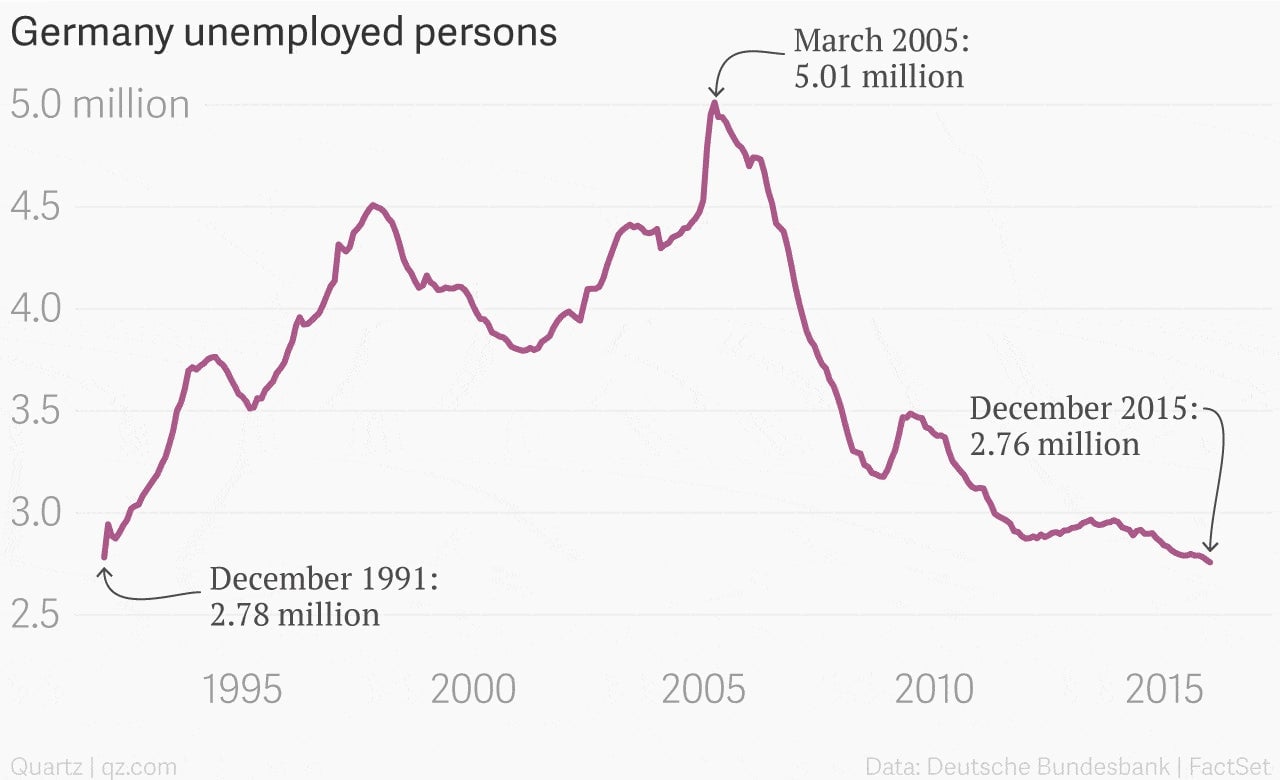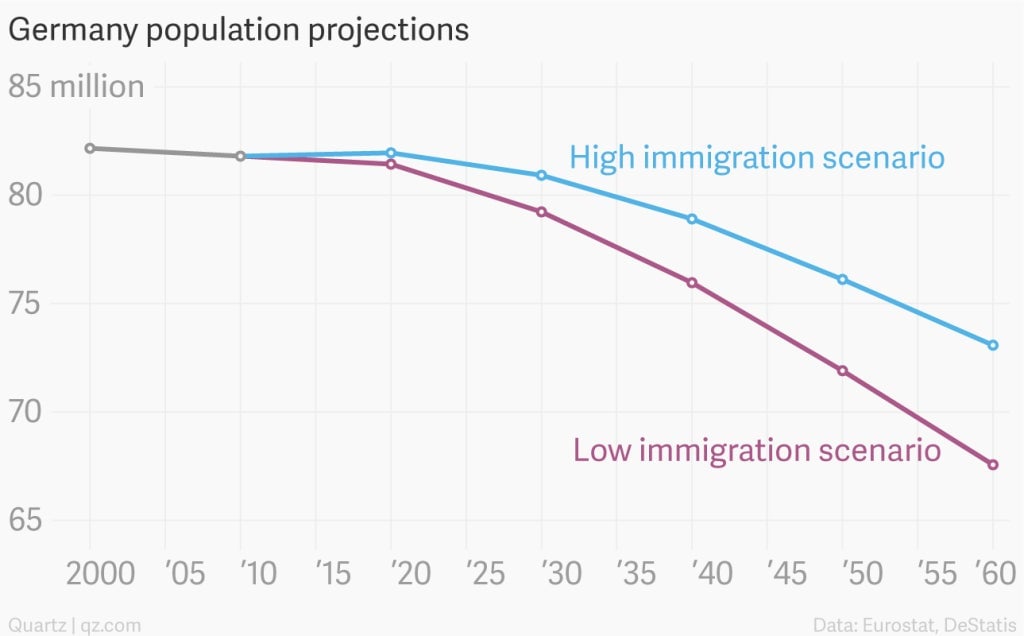Germany is the world’s strongest economy
Germany’s remarkable economic run continues, with the number of jobless Germans falling to a post-unification low of 2.757 million in December.


Germany’s remarkable economic run continues, with the number of jobless Germans falling to a post-unification low of 2.757 million in December.

As we’ve mentioned before, Germany’s particular capitalist variant—an ostensibly bizarre brew of strong labor unions, high-cost workers, and incredibly successful exports—is having quite a moment in the sun at the moment.
That’s not to say the German juggernaut will continue running at this speed. Chinese factories have become an important destination for German industrial exports in recent years. And the slowdown in the People’s Republic has showed signs of weighing on exports in recent months.
The reputation of Germany’s automotive sector—autos are Deutschland’s biggest export—has been knocked by the still-evolving Volkswagen emissions scandal.
And over the long-term, Germany is one of most rapidly aging countries in the world, which presents a challenge for growth as the labor force shrinks over time.
Some of the country’s demographic problems could be mitigated by Germany’s willingness—or at least Chancellor Angela Merkel’s willingness—to take in large numbers of the migrants now pouring into Europe.

And while it’s proven politically challenging, the German open-door policy makes sense. Like many other European countries, Germany needs more people. But unlike many other European countries, Germany also has jobs for them.